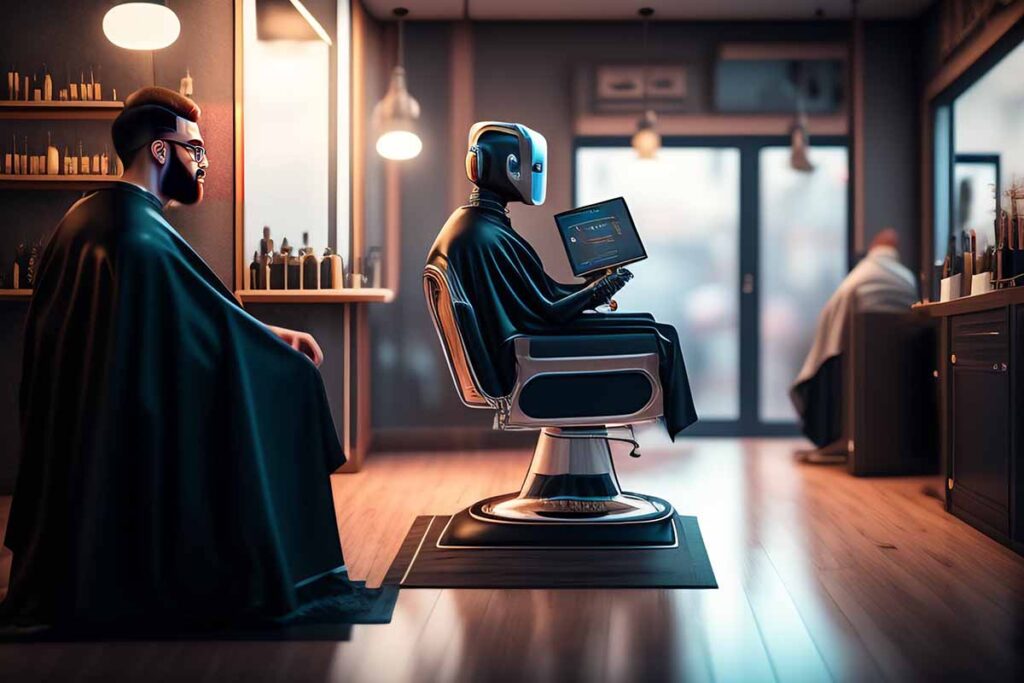In recent years, the integration of artificial intelligence (AI) into various industries has sparked significant changes in the job market. As we move forward in this era of technological advancement, it’s essential to understand which jobs AI will potentially take over and how these developments will impact the workforce. In this comprehensive article, we explore the roles AI is likely to influence and discuss the implications for job seekers and businesses.
AI-Powered Automation
One of the key areas where AI is making a substantial impact is in automation. Many repetitive, time-consuming tasks that were once performed by humans are now being taken over by AI-driven systems. Industries such as manufacturing, data entry, and customer support are experiencing this transformation. AI has the capability to work tirelessly, reducing the need for human intervention in these areas.
Impact on Manufacturing
In manufacturing, AI-driven robots and machines have revolutionized production processes. They can perform tasks with precision and consistency, which leads to increased efficiency and reduced production costs. While this is undoubtedly a boon for businesses, it does raise concerns about the displacement of human workers.
Transforming Data Entry
Data entry, once a labor-intensive job, has been greatly affected by AI. Machine learning algorithms can now extract and input data with remarkable accuracy, significantly reducing the need for manual data entry clerks.
AI in Customer Support
AI-powered chatbots and virtual assistants are becoming increasingly sophisticated. They can provide instant responses to customer queries, manage appointments, and even troubleshoot technical issues. As a result, many routine customer support tasks no longer require human agents.
The Role of AI in Data Analysis
AI is proving to be a game-changer in data analysis. Its ability to process vast amounts of data at unprecedented speeds has opened up new possibilities for businesses. Here are some of the areas where AI is making an impact:
Predictive Analytics
AI’s predictive analytics capabilities enable businesses to make data-driven decisions. By analyzing historical data, AI can predict future trends and help organizations strategize accordingly.
Market Research
Market research involves sifting through enormous datasets to identify consumer trends. AI can streamline this process by analyzing data more efficiently and providing businesses with actionable insights.
Financial Analysis
AI is also making inroads into the financial sector, where it can analyze market data, detect anomalies, and even manage investment portfolios. While it can enhance financial decision-making, it’s also challenging traditional roles in finance.
AI in Healthcare
The healthcare industry has witnessed significant transformations due to AI. From diagnosing diseases to automating administrative tasks, AI is improving patient care and streamlining operations.
Diagnostic Assistance
AI-powered diagnostic tools can assist medical professionals in accurately diagnosing diseases. For instance, AI can analyze medical images such as X-rays and MRIs to detect abnormalities with remarkable precision.
Administrative Efficiency
In healthcare administration, AI is being used to manage patient records, appointments, and billing. This not only reduces administrative errors but also lowers operational costs.
Drug Discovery
AI’s computational power is accelerating drug discovery by predicting potential drug candidates and simulating their effects. This has the potential to revolutionize the pharmaceutical industry.
The Future of AI-Resistant Jobs
While AI is automating many roles, certain jobs remain highly resistant to automation. These jobs require complex human skills that are difficult for AI to replicate.
Creative Professions
Roles that involve creativity, such as writers, artists, and designers, rely on uniquely human traits like imagination and emotional intelligence. AI may assist in these fields, but it cannot fully replace human creativity.
Healthcare Professionals
Doctors, nurses, and therapists require empathy and nuanced decision-making, making their roles challenging for AI to take over completely. AI can support healthcare professionals, but it cannot replace their expertise.
Education
Teaching and mentorship are deeply human activities, as they involve empathy, adaptability, and personal connections. While technology can aid educators, human teachers remain irreplaceable.
Preparing for the AI-Driven Future
As AI continues to reshape the job market, it’s crucial for job seekers and businesses to adapt. Job seekers should focus on developing skills that are less susceptible to automation, such as creativity, critical thinking, and emotional intelligence. Businesses should embrace AI as a tool to enhance productivity and consider reskilling their workforce to remain competitive in this evolving landscape.
In conclusion, AI is transforming the job market, automating certain roles while creating new opportunities in emerging fields. Understanding the impact of AI on specific industries and job roles is essential for navigating the ever-changing world of work. As we move forward, a balance between AI-driven automation and uniquely human skills will be the key to success in this new era.
